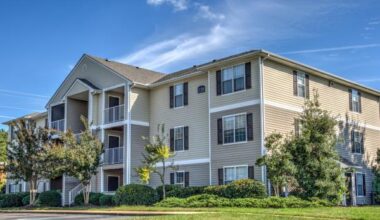Many landlords hire building superintendents, or “supers,” to assist them in managing their rental properties. The title is commonly used in the United States and Canada, but it is also known as an “apartment manager” or a “resident manager” in other countries.
The various responsibilities of supers vary depending on the agreements made between them and landlords. However, a super is typically responsible for one or more of ten tasks divided into two categories: property maintenance and tenant issues.
Let’s go over the job description, salary, and skills of a building superintendent in this article.
What is a Building Superintendent?
A building superintendent, also known as a super, property manager, or resident manager, is in charge of the maintenance and repairs for a residential building with 10 or more units. As a landlord, having someone on-site for general maintenance and upkeep, as well as minor repairs, is beneficial. When marketing your property to tenants, an on-site super can also be a selling point.
A building super is in charge of maintenance and repairs in smaller buildings. The super may take on more of a building manager role in a larger building with a larger staff. Buildings with a certain number of rental units are required to hire a super, and the rules vary by location. In New York City, for example, buildings with 10 or more units must have a janitor or super who lives on-site or within a block and is reachable 24 hours a day.
A live-in super may occupy the ground floor or a basement apartment for free or at a reduced rate. (In addition to housing, he or she may receive a salary or wage.) If the super does not live in the building, he will most likely live nearby—in New York City. He must live within one block or 200 feet of it.
Building Superintendent Skills
The following is a list of soft and hard skills used by building superintendents in their jobs:
- Communication: Building managers can communicate with residents about upcoming maintenance and apartment repairs.
- Organization: Building superintendents use organizational skills to manage their time spent on necessary maintenance and repair tasks. In the event of a building emergency, organizational skills can also come in handy.
- Cleaning: Building superintendents can research the best cleaners for various materials, such as wood, to keep the building clean and the materials in good condition.
- Lawn care: A building superintendent can perform outdoor maintenance by using lawn care skills.
- Maintenance: Building superintendents use their maintenance skills to repair plumbing, air conditioning, radiators, and other systems.
- Painting: Painting apartment units and common areas can be done as part of building maintenance.
- Supervising: A building manager can supervise other teams’ maintenance and repairs.
What Is the Role of a Building Superintendent?
A building superintendent is the primary caretaker of a residential building. He is in charge of both general maintenance and repairs. The building superintendent, also known as a building supervisor, is the person residents contact when they have maintenance issues. In addition to responding to resident requests, the building superintendent inspects the building’s common areas on a regular basis and performs routine maintenance on all building spaces. Building superintendents are in charge of everything from repairing leaks to supervising teams of contractors working on major repairs.
#1. Getting Rid of Garbage
Someone has to take out the garbage, which is usually the job of the building super. Of course, she must also return the garbage cans after they have been collected. In some larger rental complexes, the super may not have to deal with this type of chore directly. However, he or she is still responsible for supervising maintenance staff to ensure the job is completed.
The super should be familiar with the town’s garbage collection rules, such as which days of the week garbage is collected and when garbage can be placed out for collection. Many municipalities will issue fines if garbage is not picked up on time.
The super should also know which days of the month bulk items can be dropped off or who to contact to arrange a bulk pick-up, as well as the recycling schedule and procedures.
#2. Cleaning the Property
A super must keep the property’s common areas clean or ensure that the maintenance staff does so. This includes picking up trash, sweeping halls and stairwells with a broom, and mopping and keeping all walkways clear.
#3. Removal of Snow
In the winter, a super may have the additional responsibility of shoveling snow. In some parts of the country, supers may feel as if they are constantly shoveling snow, whereas, in others, this may happen only once or twice a year—or never.
Knowing how soon sidewalks and walkways should be cleared after a snowfall ends is part of snow removal. It entails shoveling sidewalks, walkways, and driveways, as well as salting icy patches and, in some cases, the snow itself, to prevent it from refreezing.
#4. Problems with Upkeep
Building supers almost always handle minor maintenance issues themselves, such as changing door locks, repairing dripping faucets, or spackling small holes, but a landlord may decide to hire a super with more advanced maintenance skills to handle heating, cooling, or plumbing problems.
In this case, the individual should have credentials demonstrating that he is capable of performing this type of work competently. In the absence of these credentials, a super may be tasked with supervising the work of professionals who do, ensuring that the work is completed on time. He may also be in charge of meeting the maintenance budget and scheduling maintenance employees’ shifts.
#5. Taking Care of Tenant Complaints
A building super typically acts as a go-between for the landlord and his tenants. When a tenant has a problem with the property, he will first contact the super.
Hence, depending on the super’s qualifications and the nature of the problem, the super may be able to handle some issues herself, or she may need to contact the landlord to figure out how to proceed. This frequently allows a landlord to avoid dealing with insignificant issues, such as changing light bulbs. It frees him up to deal with more pressing issues, such as a roof leak.
#6. Turnover of Tenants
When one tenant moves out and before a new tenant can move in, some form of maintenance is usually required, and a landlord may choose to delegate this aspect of apartment turnover to her building’s super.
This care can range from sweeping, vacuuming, and mopping the floors to replacing the cracked floor or wall tiles. Grout must also be cleaned, and the unit may need to be painted. All appliances and bathrooms must be cleaned, and all plumbing fixtures must function properly.
The super should check for any plumbing or roof leaks, ensure that the heating and cooling systems are operational, test all smoke and carbon monoxide detectors, and inspect all door and window locks. She could do the work herself, or the landlord could give her permission to hire professional cleaners and repair people.
#8. Renting out a Property
During a vacancy, a building super may be responsible for showing the rental property to prospective tenants, though she is not typically responsible for selecting the new tenant. She’ll simply show prospective tenants around the apartment and collect rental applications for the landlord to review. So, the landlord is responsible for screening tenants to ensure they are eligible to rent the apartment.
#9. The Eyes and Ears of the Landlord
When there is a problem at the property, a super can alert the landlord, especially if she lives on-site. Problem tenants, a tenant with an illegal pet, or a health and safety issue at the property are all possibilities.
What Steps Do You Take to Become a Building Superintendent?
Experience with building maintenance and repair work is required to become a building superintendent. A high school diploma is required by most employers, and some may prefer a bachelor’s degree in construction, property management, or a related field. Most importantly, you must have a broad understanding of construction and maintenance—for example, how the plumbing and electrical systems work and how to troubleshoot and repair problems. It is also necessary to be familiar with the proper use of tools.
What Is the Job Description of a Building Superintendent?
The job description of a building superintendent outlines the job’s responsibilities and duties. The primary job description of a building superintendent is to keep the building clean and safe for current and future residents. Although building superintendents are responsible for the entire structure, they are not required to complete all of the work on their own. The majority of building superintendents hire cleaners, landscapers, and contractors to help with routine maintenance and major repairs.
Is Working as a Building Superintendent a Good Job?
A job as a building superintendent is ideal if you enjoy working with your hands and completing a variety of tasks on a daily basis. Buildings can be unpredictable because problems can arise at any time, so building superintendents must be prepared to handle a wide range of repairs and maintenance issues with little notice. Building superintendents may be required to work irregular hours depending on the building’s maintenance requirements.
What Are the Advantages of Working as a Building Superintendent?
The advantages of working as a building superintendent include competitive pay and the opportunity to use your handyman skills on a daily basis. Many employers provide medical, dental, vision, and life insurance benefits, and some even provide low-cost housing on-site at the building, eliminating the need for a commute. Another advantage of building superintendent jobs is job security. As more people move into apartment buildings, the Bureau of Labor Statistics predicts a 12% increase in building superintendents over the next five years.
Salary of a Building Superintendent
In the United States, the estimated total pay for a Building Superintendent is $68,563 per year, with an average salary of $56,133 per year. These figures represent the median, which is the midpoint of the salary ranges calculated by our proprietary Total Pay Estimate model and based on salaries submitted by our users. The extra pay is estimated to be $12,430 per year. Additional compensation may include a cash bonus, commission, tips, or profit-sharing. The “Most Likely Range” represents values that fall between the 25th and 75th percentiles of all available pay data for this role.
The annual salary for a Building Superintendent in the United States is $40,069.
Do superintendents have to pay rent?
Most building superintendents live in the apartment building they manage and pay either no rent or a greatly reduced rate. Aside from lower housing costs, the fact that their workplace is located within the building in which they live reduces commute costs.
What is the distinction between a building superintendent and a building manager?
While superintendents are generally in charge of the upkeep of residential buildings or complexes, building managers also work in other buildings such as schools and businesses. This usually entails less direct involvement and more delegation.
Conclusion
A building super acts as a liaison between the landlord and the tenants of the building. Because there is no one-size-fits-all job description for a building superintendent. So, keep in mind that your experience with supers may differ from that of others.
Building Superintendent FAQs
How much does a building superintendent make in NYC?
In New York, NY, the typical salary for a building superintendent is $61,575 per year, with an additional $8,437 per year for overtime.
How much do building superintendents make in Ontario?
In Canada, the average building superintendent salary is $37,050 per year or $19 per hour. Starting salaries for entry-level employment start at $31,649 per year, with most experienced professionals earning up to $54,208 per year.
What makes a good building superintendent?
In order to add value to the project, a superintendent should learn as much as possible about the structure, the customer, and their vision. Supers must keep the “big picture” in mind while still paying attention to a variety of little project specifics.
What is the role of a super?
A building superintendent, sometimes known as a super, property manager, or resident manager, is in charge of the upkeep and repairs for a residential building with 10 or more units.
Related Articles
- BUILDING CONTRACTOR: Job Description, Roles, and Salaries (Updated!)
- GENERAL CONTRACTOR: Skills, Roles, Licence Requirements & Salary
- GARDEN STYLE APARTMENTS: Types, Benefits & Drawbacks
- INTELLECTUAL PROPERTY LAWYERS: Career Guide and 2023 Salaries
- CONSTRUCTIVE EVICTION: Definition & Guide On How It Works In Different States






